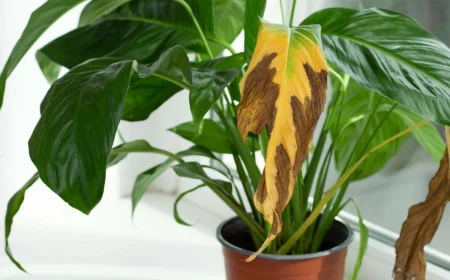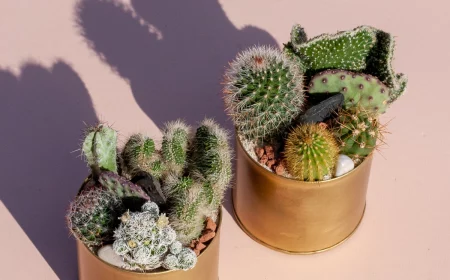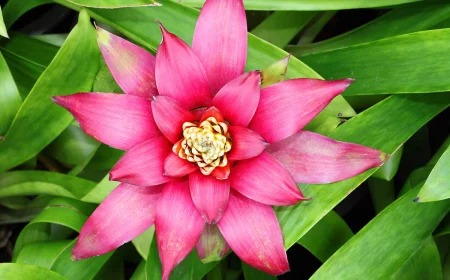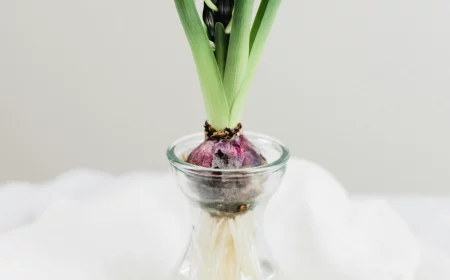Beautiful But Dangerous: A Gardener’s Guide to Common Toxic Plants
I’ve had my hands in the dirt for more than two decades, designing gardens, teaching folks the ropes, and, of course, tending to my own jungle of plants. And in all that time, I’ve learned one lesson that truly matters: beauty can be a bit of a trickster. Some of the most stunning, popular plants we welcome into our homes and yards are hiding a secret—they can be harmful to our curious kids and pets.
In this article
Now, this isn’t meant to scare you out of the garden. Not at all. Think of this as a friendly chat over the fence, sharing the kind of know-how that lets you build a space that’s both gorgeous and genuinely safe. A smart gardener knows their plants, not just what they look like, but what they’re capable of. So, let’s dig in.
First, What Makes a Plant “Toxic”?
Before we start naming names, let’s get a handle on what “toxic” even means in the plant world. Plants can’t exactly run away from predators, right? So, they cook up their own chemical defenses to make themselves less appealing to whatever wants to nibble on them. These defenses can range from a mild “yuck, don’t eat me” to something seriously dangerous.

Here’s a quick rundown of their usual tricks:
- Microscopic Needles (Calcium Oxalate Crystals): A ton of common houseplants use this trick. Picture their leaves and stems packed with tiny, needle-sharp crystals. When a person or pet chews on the plant, these crystals shoot out and embed in the soft tissues of the mouth and throat. It’s a painful physical injury, not a chemical poison, causing instant swelling and drooling.
- Alkaloids: These are powerful, naturally-made compounds that can mess with the nervous system, heart, and gut. The stuff in daffodils that makes you sick is a classic example.
- Cardiac Glycosides: Okay, this is a serious one. These chemicals directly interfere with the heart’s rhythm, either slowing it down or making it beat erratically. Oleander is the poster child for this type of toxin.
- Grayanotoxins: Found in the Rhododendron family, these toxins mess with nerve and muscle cell function, which can lead to a scary drop in blood pressure and heart rate.
- Saponins: These are basically soap-like compounds. They’re great at irritating the stomach and causing vomiting and diarrhea. Generally less dangerous, but still a really bad day for whoever ate them.

Who’s Really at Risk?
It’s the curious toddler exploring the world mouth-first. It’s the bored puppy who thinks a plant stalk is a chew toy, or the cat who nibbles on leaves for fun. Animals are especially vulnerable; a cat can get sick just by grooming pollen off its fur after brushing against the wrong flower.
And please, don’t fall into the ‘my pet never chews plants’ trap. I’ve heard it a million times. All it takes is one moment of boredom or a new-found curiosity for a bad situation to unfold.
Heads Up: The Most Dangerous Plants for Pets
Before we get into the broader list, I have to call out the two plants that cause some of the most frantic calls to pet poison hotlines. If you have pets, these are non-negotiable.
True Lilies (Lilium and Hemerocallis species) – [FATAL TO CATS]
I’m talking about Easter lilies, Stargazer lilies, Tiger lilies, and Daylilies. For cats, these are one of the most dangerous toxins they can encounter. Every single part of the plant is poisonous: the petals, the stems, the leaves, and even the pollen. A cat just brushing by and getting a little pollen on its fur can ingest a fatal dose while grooming.

Even the water in the vase is toxic. Ingesting any amount can lead to rapid and irreversible kidney failure. If you have cats, my professional advice is simple: do not have these lilies in your home or garden. It’s just not worth the risk.
Sago Palm (Cycas revoluta) – [EXTREMELY DANGEROUS]
This popular ornamental looks like a mini palm tree and is common both indoors and out in warmer climates. But it is incredibly toxic, especially to dogs. While all parts are poisonous, the seeds (or “nuts”) contain the highest concentration of toxins. Just one or two seeds can be a fatal dose.
The toxin, cycasin, causes severe and often irreversible liver failure. Symptoms start with vomiting and diarrhea and can progress quickly. This is a top-tier danger plant if you have a dog that likes to chew.
A Gardener’s Guide to Toxic Outdoor Plants
Your yard should be a haven, not a hazard. Knowing what you’re working with makes all the difference.

Daffodil (Narcissus species) – [MEDIUM RISK]
Ah, the cheerful daffodil. It’s a sign that spring is here, but every part of the plant is toxic, with the highest concentration of toxins packed into the bulb. I once had a client whose new puppy dug up a dozen freshly planted bulbs. Luckily, the pup just shredded them, but it was a heart-stopping moment.
- Symptoms: If eaten, expect severe vomiting, drooling, and diarrhea. If a lot is eaten (especially the bulbs), it can cause heart rhythm problems and a drop in blood pressure.
- Pro Tip: People often forget that even the vase water is toxic. If you bring cuttings inside, make sure pets can’t drink from the vase. When handling the bulbs, it’s a good idea to wear gloves. Some people develop a skin rash known as “daffodil itch.” If you get it, just wash the area well with soap and water and maybe use a little over-the-counter hydrocortisone cream.

Azalea & Rhododendron – [HIGH-DANGER]
These shrubs are landscape staples for their knockout blooms. However, all parts of the plant are extremely toxic due to grayanotoxins. There are even old stories of people getting sick from honey made by bees that visited these flowers.
- Symptoms: This is not a plant to mess with. Even a few leaves can cause serious issues like drooling, vomiting, weakness, and a dangerous drop in blood pressure and heart rate. Serious cases can be fatal.
- Handling: If you have grazing animals like goats, don’t plant these anywhere they can reach. For homes with kids and pets, I suggest planting them in areas that aren’t the main play zones. If you suspect ingestion, it’s an immediate emergency. Call your vet or poison control right away.
Oleander (Nerium oleander) – [HIGH-DANGER]
You see this tough, drought-tolerant shrub lining highways in warmer climates for a reason—it’s hardy because it’s packed with poison. Oleander is one of the most dangerous plants you can have in your yard. It contains cardiac glycosides, which are powerful heart toxins.

- Safety Warning: I cannot stress this enough: every single part of this plant is poisonous. The leaves, flowers, stems… even the smoke from burning the trimmings is toxic. NEVER burn oleander cuttings or use the sticks to roast marshmallows or hot dogs. Tragic accidents have happened this way. Handle it with gloves and dispose of cuttings in the trash, not a burn pile.
Wisteria – [MEDIUM RISK]
That draping, romantic wisteria vine is a showstopper. Its toxicity is mostly in the seeds and pods, which look a bit like fuzzy pea pods. The risk is highest for dogs or kids who might be tempted to eat a whole pod.
- Easy Fix: Honestly, this one is simple to manage. After the flowers fade in late spring or early summer, just take five minutes and snip off the velvety green seed pods that form. Look for them hanging down, cut them at the stem with any pair of pruners, and just toss them in the trash. Problem solved for the year.

Hydrangea – [LOW RISK]
Everyone loves those big, billowy hydrangea flowers. Their toxicity is real, but it’s often blown out of proportion. A child or pet would have to eat a lot of leaves or flowers to get seriously sick. The most likely outcome is an upset stomach, vomiting, and diarrhea. The risk is low, but not zero.
English Ivy (Hedera helix) – [LOW RISK]
This aggressive vine is everywhere. The main issue I see is contact dermatitis—people who pull it out with bare hands often get a nasty, itchy rash. So, quick tip: always wear gloves and long sleeves when you’re wrestling with ivy. If a pet chews on the leaves or berries, it can cause some mouth irritation and stomach upset, but it’s usually not severe.
Rhubarb – [MEDIUM RISK]
Here’s a rule every gardener must know: stalks for pie, leaves for the compost pile. This isn’t just an old saying. The leaves contain high levels of oxalic acid, which can cause kidney damage if eaten. The stalks are perfectly safe and delicious, but the leaves are toxic whether they’re raw or cooked. Keep them out of the kitchen and away from any animals that might graze.

A Guide to Common Toxic Houseplants
We bring plants inside for that touch of green, but many of the easiest and most popular choices pose a risk, especially to pets and toddlers.
Dieffenbachia (Dumb Cane) – [HIGH-DANGER]
The plant’s common name is your first warning. Chewing on a leaf is like getting a mouthful of microscopic needles. The pain is instant and intense, and the swelling can be so severe it can block the airway, making it hard to breathe or even speak. This is a high-risk plant for a home with curious mouths. If you have one, please place it somewhere it is absolutely unreachable.
Philodendron & Pothos / Devil’s Ivy – [MEDIUM RISK]
I’m grouping these together because they’re related and have the same weapon: those calcium oxalate crystals. They are probably the most common houseplants on the planet. Chewing on them causes intense mouth pain, drooling, and vomiting, though the reaction is typically less severe than with Dumb Cane.

- Pro Tip: The trailing nature of these plants makes them perfect for hanging baskets. You can find simple hangers online or at any garden center for under $10. It’s the easiest way to keep them looking great while staying safely out of reach.
Dracaena Fragrans (Corn Plant) – [LOW RISK]
This is another beginner-friendly favorite. For dogs and cats, eating it usually leads to vomiting (sometimes with blood), drooling, and a loss of appetite. It’s not typically life-threatening, but it’s guaranteed to be a stressful experience. A friend of mine learned this the hard way—the $20 plant resulted in a $500 vet bill for fluids and observation. Ouch.
Aloe Vera – [LOW RISK]
Here’s a tricky one. We use the inner gel for skincare, so we assume it’s totally safe. The gel is fine. But the leaf itself contains a layer of bitter yellow latex just under the skin. This stuff is a powerful laxative. If a dog or cat chews on a whole leaf, it can cause some pretty severe stomach cramps and diarrhea. So, keep the plant itself on a high windowsill where pets can’t get to it.

Emergency Plan: What to Do if You Suspect Poisoning
If you think a child or pet has eaten a toxic plant, your calm and quick action is everything. Here’s what to do.
- Act Fast. Get your child or pet away from the plant. Gently wipe out their mouth to remove any leftover bits.
- DO NOT Induce Vomiting. This is old advice. For plants that cause swelling or burning, vomiting can cause a second round of damage on the way up. Let a professional make that call.
- Identify the Plant. If you can, snap a quick photo. If you head to the ER or vet, bring a small piece of the plant in a sealed plastic bag. Knowing exactly what was eaten is critical for treatment.
- Call for Help Immediately. Do not wait for symptoms.
- For Humans: Call the Poison Control Center. In the US, the number is 1-800-222-1222. They are available 24/7 and are the absolute experts.
- For Pets: Call your veterinarian or a 24-hour emergency vet. You can also call the ASPCA Animal Poison Control Center at (888) 426-4435 or the Pet Poison Helpline at (855) 764-7661.
Quick Win: Pull out your phone RIGHT NOW and program the human poison control number and at least one of the pet poison hotlines into your contacts. Seriously, do it now. It takes 30 seconds and could save a life.

By the way, the pet hotlines usually have a consultation fee (around $75-$95). It’s because they’re staffed by veterinary poison specialists, not government-funded like the human line. In a panic, it is worth every single penny to get life-saving advice for your buddy.
Creating a Beautiful and Safe Space
Okay, now you have the knowledge. Here’s how you use it.
- Assess Your Space: Get down on your hands and knees and see the world from a toddler’s or a puppy’s perspective. What’s at their level? What looks tempting?
- Place Plants Safely: Use high shelves, hanging planters, or plant stands to elevate risky plants. In the garden, a simple, low decorative fence can create a
Inspiration:


What’s the very first thing I should do if my pet or child ingests a plant I suspect is toxic?
Stay calm and act fast. First, remove any remaining plant material from their mouth. Do not try to induce vomiting unless specifically instructed by a professional. Immediately call the ASPCA Animal Poison Control Center at (888) 426-4435 for pets, or the Poison Control hotline at (800) 222-1222 for humans. If you can, have a piece of the plant ready for identification—or even better, a photo of it on your phone. Acting quickly and calling the right experts is the most critical step.

Did you know that even the water in a vase holding cut flowers can become toxic? Cut lilies or daffodils, for example, can leach their poisonous compounds into the water, creating a dangerous drink for a curious cat or dog.

When designing for safety, you have two main approaches. Which one fits your lifestyle?
The Zoned Garden: This involves creating designated ‘off-limits’ areas for more dangerous beauties like Foxglove or Monkshood, using attractive fencing, raised beds, or placing them in the back of deep borders where pets and kids can’t easily reach. It allows for more plant variety.
The Completely Safe Garden: This approach means only choosing 100% non-toxic plants. It’s the ultimate peace-of-mind solution, perfect for families with toddlers or free-roaming pets. Think lush Boston Ferns, colorful Snapdragons, and fragrant Catnip.
The best choice depends on your supervision level and garden layout, but both are valid strategies for a secure and beautiful space.

You don’t have to sacrifice drama to have a safe garden. Many stunning plants offer the same visual impact as their toxic counterparts. Consider these easy swaps:
- Instead of the highly toxic Sago Palm, which is dangerous to pets, opt for the equally architectural and completely safe Parlor Palm (Chamaedorea elegans).
- For a splash of vibrant color, swap out poisonous Azaleas for the brilliant blooms of Camellias, which are non-toxic and offer gorgeous winter flowers.
- Love the trailing look of English Ivy? Try the pet-safe String of Turtles (Peperomia prostrata) for a similar cascading effect without the risk.

- Always wear gloves when pruning plants that have a milky sap, like Euphorbias or Figs. This sap can be a major skin and eye irritant.
- Never add clippings from highly toxic plants like Oleander or Castor Bean to your active compost pile, as the toxins can persist and pets might investigate the heap.
- Be mindful of fallen flowers and leaves. The beautiful but deadly blossoms of a Lily of the Valley are just as dangerous on the ground as they are on the stem.
True garden safety goes beyond just planting; it’s about mindful maintenance and cleanup routines.
A secret weapon in your pocket: Before bringing any new plant home from the nursery, use an identification app like PictureThis. A quick photo can instantly identify the species and often provides detailed information on its toxicity to humans and animals. This simple step can prevent a hazardous mistake before it even enters your garden, making every shopping trip smarter and safer.










